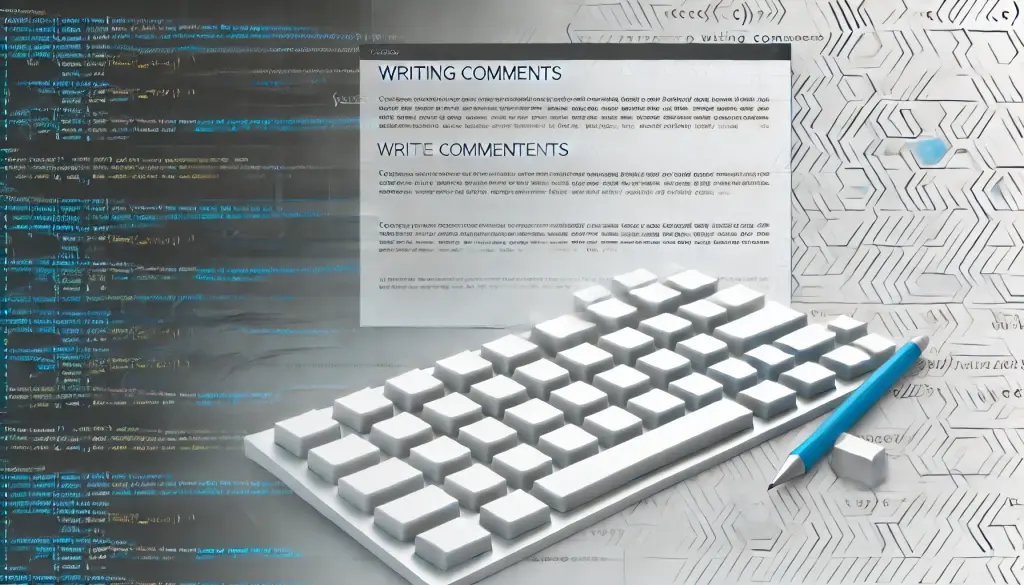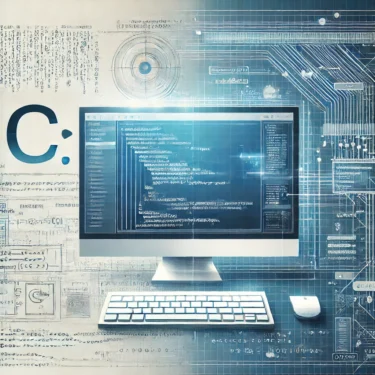1. Introduction
The Importance of Comments in C Programming
C is a powerful and flexible programming language, but even for its developers, code can become difficult to understand after some time has passed. That’s why comments are essential for keeping code readable and easy to comprehend. Comments are notes within the code that do not affect program execution, serving as helpful reminders for anyone reading the code. In this article, we’ll explain how to use comments in C and share best practices for effective commenting.
2. Types of Comments in C
2.1. How to Use Multi-line Comments
Multi-line comments start with /* and end with */. This format lets you write comments that span more than one line, which is especially useful for providing an overview of the code or explaining multiple processes in detail.
/*
This program receives input from the user
and performs calculations based on that input.
*/
int main() {
// Start processing
}This format is very convenient when you need a block of comments. However, keep in mind that /* and */ cannot be nested, so use them carefully.
2.2. How to Use Single-line Comments
C also supports single-line comments. By placing // at the beginning of a comment, you can comment out the rest of the line. This is useful for adding short notes to specific lines of code.
int x = 10; // Assign 10 to xSingle-line comments are ideal for providing brief explanations of variables or processes, keeping your code tidy and easy to read. Frequent use is recommended for clarity.
3. Basic Rules for Writing Comments
3.1. Optimize the Amount and Content of Comments
Comments are tools for providing necessary information, but excessive commenting can be counterproductive. Too many comments can actually reduce readability and cause confusion. Therefore, you should only comment to the extent that it helps clarify the code.
Example of an unnecessary comment
int sum = a + b; // Add a and b and assign to sumThis comment is redundant since the code’s intent is already clear. Such comments are unnecessary.
3.2. Write Clear and Specific Comments
On the other hand, it’s important to leave clear and specific comments for complex processes or parts that may be difficult for others to understand. By explaining the purpose or background of the code, you make it much easier for others to follow later on.
4. Best Practices for Using Comments
4.1. Consistent Comment Style
Maintaining a consistent commenting style throughout your project is especially important in team development. When multiple developers work on the same codebase, using uniform styles for comment placement, format, and language improves overall readability.
4.2. Use Documentation Comments
When detailed explanations are needed for functions or classes, it’s recommended to use documentation comments. For example, adding details about a function’s purpose, arguments, and return values makes the code easier for new developers to understand.
/**
* @brief Adds two integers
* @param a The first integer to add
* @param b The second integer to add
* @return The sum of the two integers
*/
int add(int a, int b) {
return a + b;
}

5. Maintaining Code with Comments
5.1. Improving Code Maintainability with Comments
Comments do more than just explain—they also improve code maintainability. For long-term projects or large codebases, comments help you understand the reasoning and decisions behind the code when making future changes.
5.2. The Importance of Updating and Removing Comments
When modifying code, it’s important to update related comments as well. Outdated comments can create confusion if they don’t match the code’s current behavior. Remove unnecessary comments and keep your code clean.
6. Practical Uses of Comments
6.1. Using Comments for Debugging and Testing
Commenting out lines of code is useful for temporarily disabling code during debugging or testing. This allows you to test certain sections while leaving others inactive.
int main() {
int result = add(2, 3);
// printf("Result: %d", result); // For debugging
}6.2. Documenting Experimentation
Commenting out code is also helpful when experimenting with different values or conditions. You can keep the original code while trying out alternative versions, making development more flexible.
int main() {
int result;
result = add(1, /* 2 */ 3); // Changed 2 to 3
printf("%d", result);
}7. Conclusion
Comments in C programming are powerful tools for improving code readability and maintainability. By adding and maintaining appropriate comments, developers can communicate more effectively and build a more efficient development environment. Remember, comments are not just add-ons—they are an essential part of your code.




